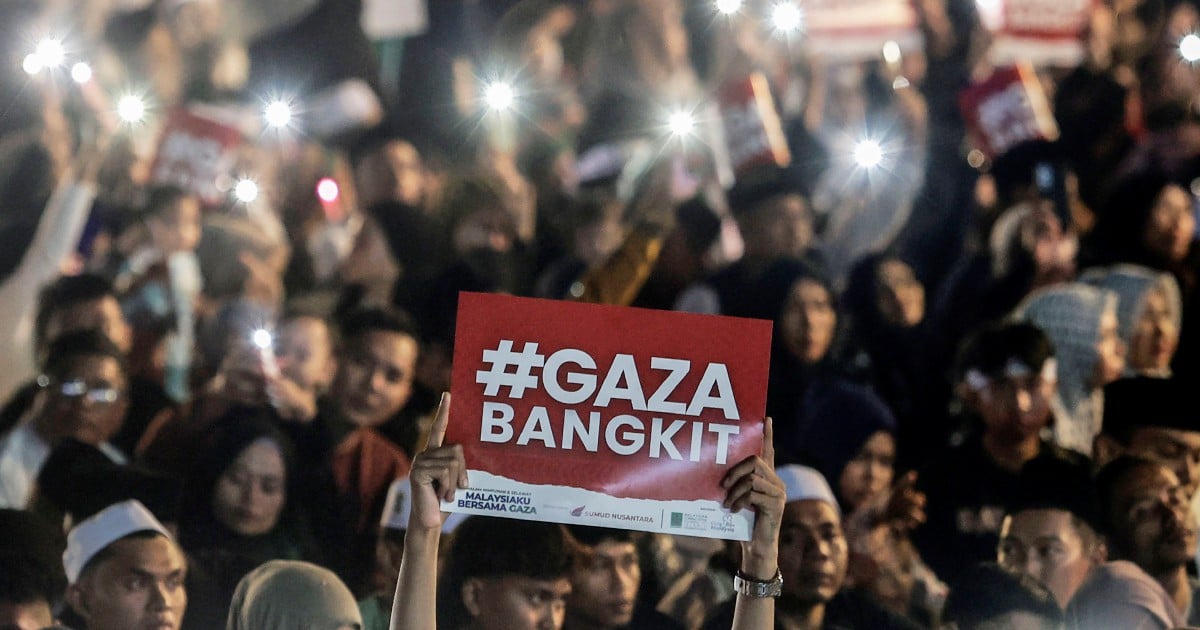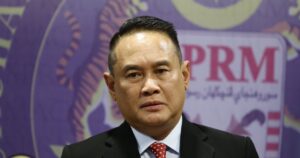IN a dynamic context reflecting fundamental changes in the international system, Malaysia has moved beyond its isolation and preoccupation with its internal problems.
It has been able to resume its strong presence, dare to speak out against major powers, and maintain “neutrality” in the face of the fierce competition between the United States and China.
What is new in the Malaysian scene is a “firm tone” and extreme pragmatism in dealing with the West and the rising powers of the East.
As for the Middle East, many are following Prime Minister Datuk Seri Anwar Ibrahim’s efforts to defend the cause of the Palestinian people.
Arab experts believe that Malaysia’s influence, the vitality of its civil society, and the courage of its leaders to speak out against Western powers have contributed to the growing global movement in support of the Palestinian people.
In response to the detention of the Madeleine, Malaysia is preparing a “Flotilla of 1,000” to break the siege of Gaza.
Azmi Abdul Hamid, chairman of the Coordinating Council of Islamic Organisations Malaysia, said the results of his contacts with bodies and organisations from around the world were very encouraging for the launch of a flotilla of 1,000 ships.
It is worth noting that this initiative is inspired by the spirit of the Freedom Flotilla of 2010, in an attempt to mobilise international public opinion against the continued blockade, which violates international conventions.
Anwar affirmed his country’s firm position on the Gaza Strip and also Iran, despite all the US pressure exerted during the tariff negotiations on Malaysian imports.
His country’s position is consistent with its repeatedly expressed deep concern over the humanitarian situation in the Gaza Strip and its calls for a ceasefire.
Malaysia also supports the establishent of an independent Palestinian state within 1967 borders.
Anwar strongly criticised the “hypocrisy of the West” regarding the conflict in Gaza, particularly Germany’s pro-Israel stance.
During his recent visit to Berlin, he criticised German Chancellor Olaf Scholz and emphasised the need to end the “hypocrisy of the West” in its handling of the events there, noting that the problem was not limited to the Oct 7 attack.
Anwar directly asked the German chancellor about the reason for this “hypocrisy” and did not hesitate to use the term “genocide” to describe what was happening in Gaza.
There was no immediate response from the German chancellor. One commentator described the chancellor’s reaction as “heartless” for not being moved by Anwar’s words. Meanwhile, Anwar’s statements received widespread praise.
Anwar’s stance, along with international and domestic pressure, contributed to Meretz halting arms exports to the racist government in Israel.
Malaysia appears to have succeeded in highlighting its independence and strengthening its position as an Asian power, a significant force in the Organisation of Islamic Cooperation, and a leader of the Global South.
Through its chairmanship of the Asean this year, Malaysia has been able to highlight the concept of “Asean Centrality”, a principle that supports the independence of Asean countries and enhances their ability to make decisions independent of major powers such as China and the US.
In the security field, Malaysia seeks to enhance cooperation between Asean and the Gulf Cooperation Council (GCC) countries in confronting common threats, such as terrorism and piracy.
Trade between them has reached more than US$100 billion in recent years, and cooperation extends to the cultural and tourism sectors, as Malaysia seeks to make Asean a preferred destination for tourists from the Gulf countries.
Malaysia’s experience is significant. By adopting neutrality through a balanced strategy, Malaysia seeks to achieve several goals, most notably: strengthening cooperation with the Gulf and China without compromising the independence of Asean; establishing a multilateral strategic partnership to achieve sustainable economic growth; and building new economic and trade networks that support regional stability.
At the same time, it opens new horizons for strengthening the position of Asean and the GCC as effective regional powers that shape a more stable and prosperous global order.
Ultimately, Malaysia’s experience is admired, and it is important to see whether there is a chance for a more stable and prosperous global order.
* The writer is the Managing Editor of Al-Ahram newspaper, an expert in international affairs, the Middle East, the environmental issues and sustainable development
© New Straits Times Press (M) Bhd





